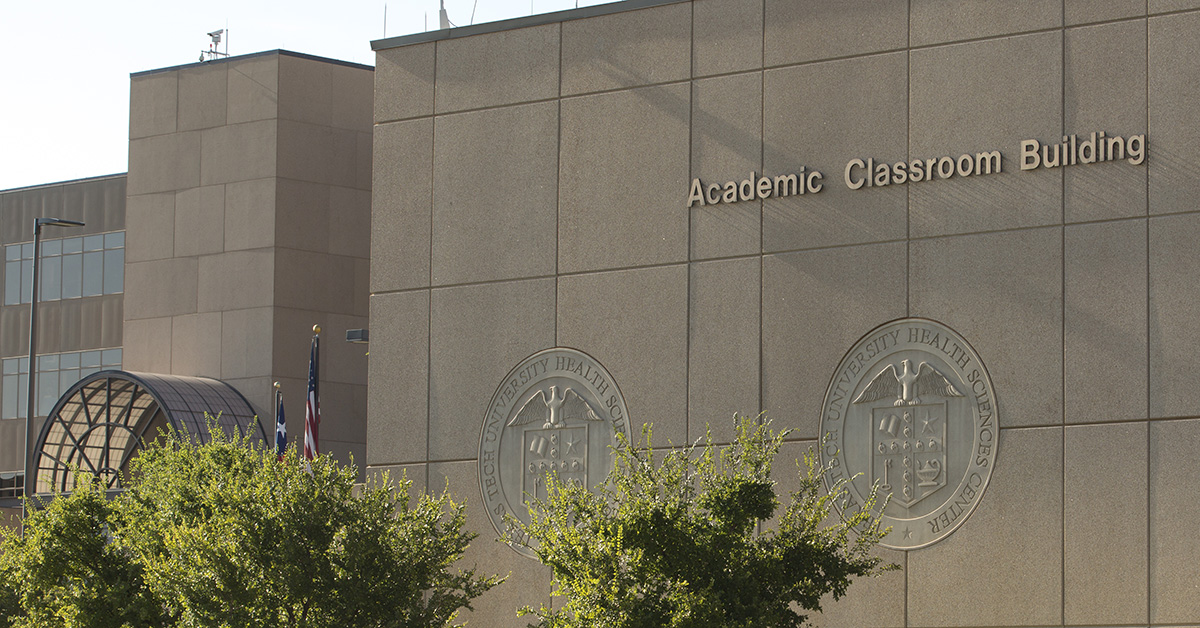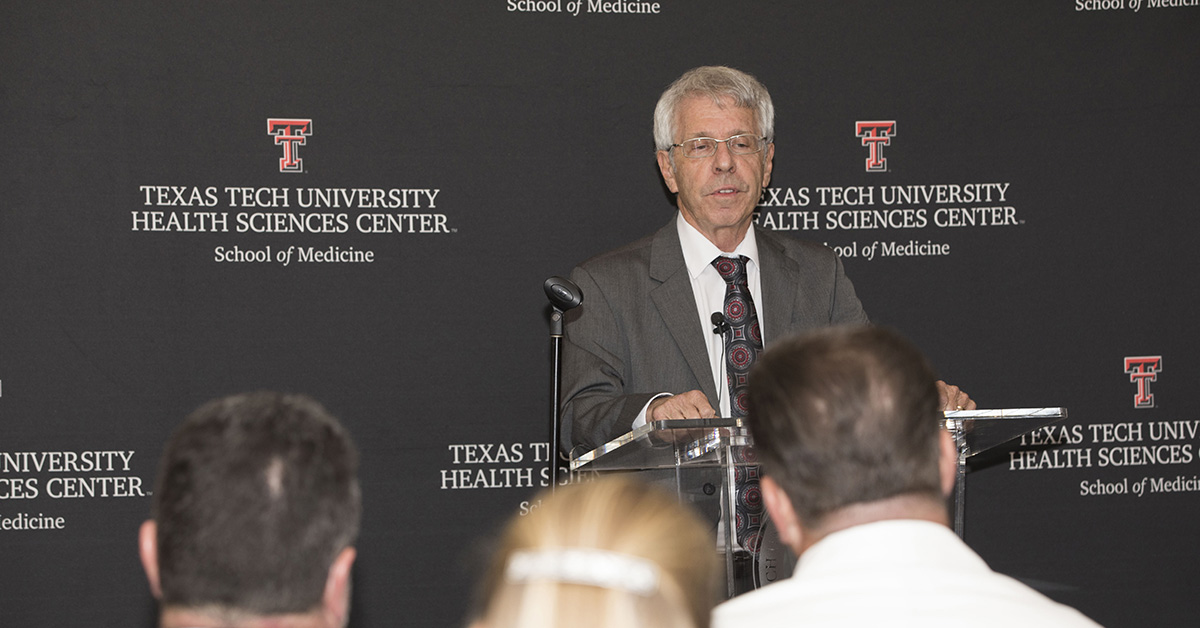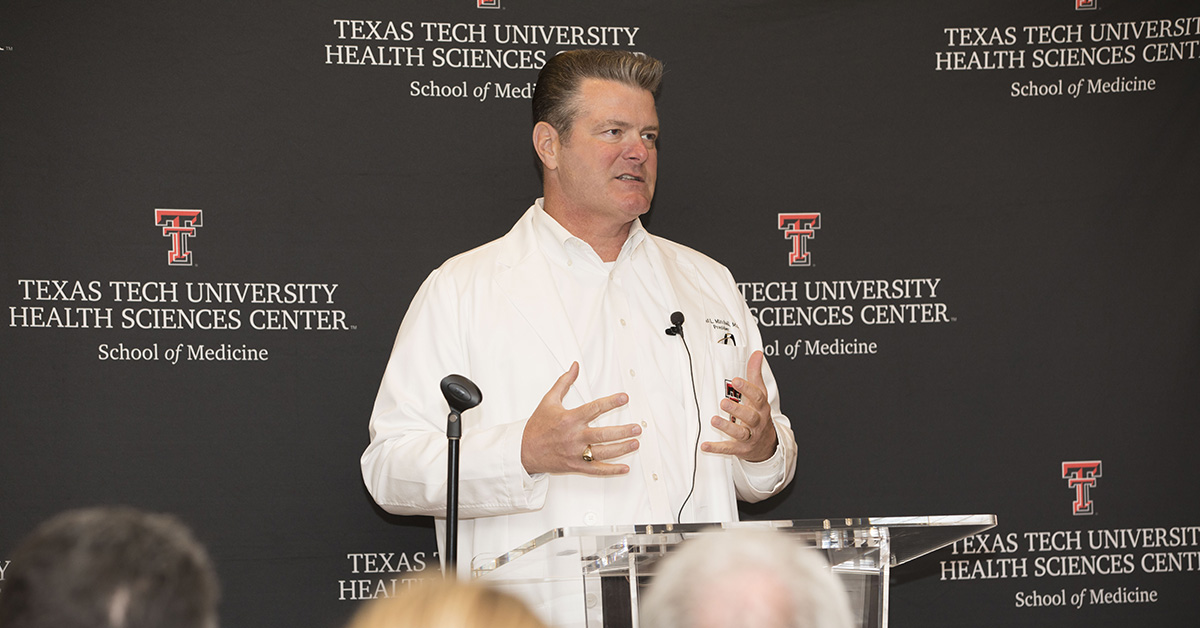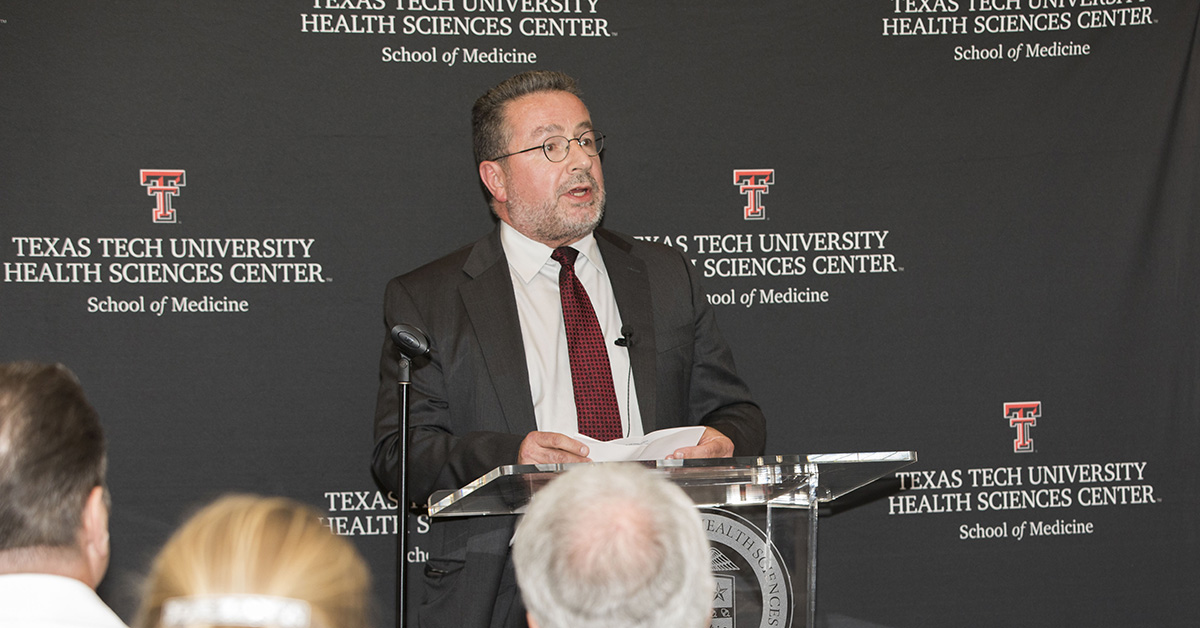TTUHSC School of Medicine Announces More Than $20 Million in New Research Grants

The Texas Tech University Health Sciences Center (TTUHSC) School of Medicine announced
$20.5 million in new research funding this year.
Steven Berk, M.D., TTUHSC executive vice president, provost and School of Medicine
dean, said these grants focus in areas such as cancer, alcoholism, pain management,
neuroscience and infectious diseases.

Steven Berk, M.D., TTUHSC executive vice president, provost and School of Medicine Dean
“The School of Medicine is dedicated to providing the best care and one way to achieve
that is through research,” Berk said. “Research leads to new knowledge and discoveries
which allows our experts to seek new treatments and develop new medications. Research
goes hand-in-hand with better technology, cures and teaching future physicians.”
The National Institutes of Health (NIH), including the National Cancer Institute (NCI),
the National Institute of Diabetes and Digestive and Kidney Diseases (NIDDK) and the
National Institute of Neurological Disorders and Stroke (NINDS), the Department of
Defense (DOD), along with others from the National Science Foundation (NSF), and the
Cancer Prevention Research Institute of Texas (CPRIT), awarded the grants.

President Tedd L. Mitchell, M.D., Texas Tech University System Interim Chancellor and TTUHSC President
“This celebration is to recognize the outstanding work of our investigators in cancer,
vaccine and drug development, pain management, aging, infectious diseases and other
fields,” Texas Tech University System Interim Chancellor and TTUHSC President Tedd
L. Mitchell, M.D., said. “They have the full support of our leadership and our faculty.
Externally funded peer-reviewed research at TTUHSC is truly excellent and is growing
rapidly. The discovery of new knowledge has always been a core mission.”

Quentin Smith, Ph.D., TTUHSC Senior Vice President of Research
Grants include:
Sanjay Awasthi, M.D., Department of Defense, $1,147,500.00 over three years
“Prevention of Breast Cancer by Haploinsufficiency of RALBP1”
Patrick Reynolds, M.D., Ph.D., and Min Kang, Pharm.D., NIH/NCI, $2 million over five
years, “MYC Activation in Tumor Progression of Neuroblastoma” and also NIH/NCI, $1,622,266
over three years, “Characterization of a panel of neuroblastoma patient-derived models
for preclinical therapeutic studies”
Reynolds, also received an NIH/NCI, $1,749,940 over five years
“Alternate telomere maintenance mechanisms in high-risk neuroblastoma as prognostic
indicators and therapeutic targets”
H. Liang, Ph.D., CPRIT, $200,000 over two years
“Polymer nanodiscs: Novel lipoprotein-mimicking nanocarriers with high stability and
long circulation time for enhanced anticancer drug delivery”
Yangzom Bhutia, Ph.D., NIH, $153,000.00
“Carbidopa as an inhibitor of the TrpT/IDO1 complex: Potential for use as an immunotherapy
agent?”
H. Liang, Ph.D., NSF, $457,931 over three years
“Nanostructure engineering is another approach toward membrane-active antimicrobials
with desirable activity and selectivity”
Lan Guan, Ph.D., NIH NIGMS, $1,300,500 over five years
“Integrated approaches to symport mechanisms of membrane transporters”
Luis Cuello, Ph.D., NIH, $1,247,868 over five years
“High-resolution crystallographic and functional studies of potassium channel function”
Volker Neugebauer, Ph.D.,NIH/NINDS, $1,536,123.00 over five years
“Stress-induced descending facilitation from amygdala kappa opioid receptors in functional
pain”
Josée Guindon, Ph.D., NIH from NIDA, $691,332.00 over five years
“Mechanisms of cannabinoid tolerance”
Ion Bobulescu, M.D., NIH/NIDDK, 1,047,717.00
“Role of gut bacteria and renal lipids in obesity-related kidney disease”
Susan Bergeson, Ph.D., and Ted Reid, Ph.D., NIH/NIAAA, $60,000 over one year, “Development
of Tetracycline Analogs for Alcohol Use Disorder Treatment,” and NIH/NIAAA, $1,639,120.00
over five years, “Chemically modified minocycline for treatment of alcohol use disorder”
Andrey Karamyshev, Ph.D.,NIH/NINDS,$153,000.00 over two years
“Identification of Translational Regulators of Alpha-Synuclein Folding and Aggregation”
Sam Prien, Ph.D., NSF, $50,000
“A non-invasive technique for embryo assessment”
View the full press conference through Facebook live at https://www.facebook.com/ttuhsc/.
Related Stories
Celebrating Veterans: TTUHSC’s General Martin Clay’s Legacy of Service and Leadership
From his initial enlistment in the Army National Guard 36 years ago to his leadership in military and civilian health care management roles, Major General Martin Clay’s career has been shaped by adaptability, mission focus and service to others.
Texas Tech University Health Sciences Center School of Nursing Named Best Accelerated Bachelor of Science in Nursing Program in Texas
The TTUHSC School of Nursing Accelerated Bachelor of Science in Nursing (BSN) program has been ranked the No. 1 accelerated nursing program in Texas by RegisteredNursing.org.
TTUHSC Names New Regional Dean for the School of Nursing
Louise Rice, DNP, RN, has been named regional dean of the TTUHSC School of Nursing on the Amarillo campus.
Recent Stories
The John Wayne Cancer Foundation Surgical Oncology Fellowship Program at Texas Tech University Health Sciences Center Announced
TTUHSC is collaborating with the John Wayne Cancer Foundation and has established the Big Cure Endowment, which supports the university’s efforts to reduce cancer incidence and increase survivability of people in rural and underserved areas.
TTUHSC Receives $1 Million Gift from Amarillo National Bank to Expand and Enhance Pediatric Care in the Panhandle
TTUHSC School of Medicine leaders accepted a $1 million philanthropic gift from Amarillo National Bank on Tuesday (Feb. 10), marking a transformational investment in pediatric care for the Texas Panhandle.
Texas Tech University Health Sciences Center Permian Basin Announces Pediatric Residency Program Gift
TTUHSC Permian Basin, along with the Permian Strategic Partnership and the Scharbauer Foundation, Feb. 5 announced a gift that will fund a new pediatric residency.
